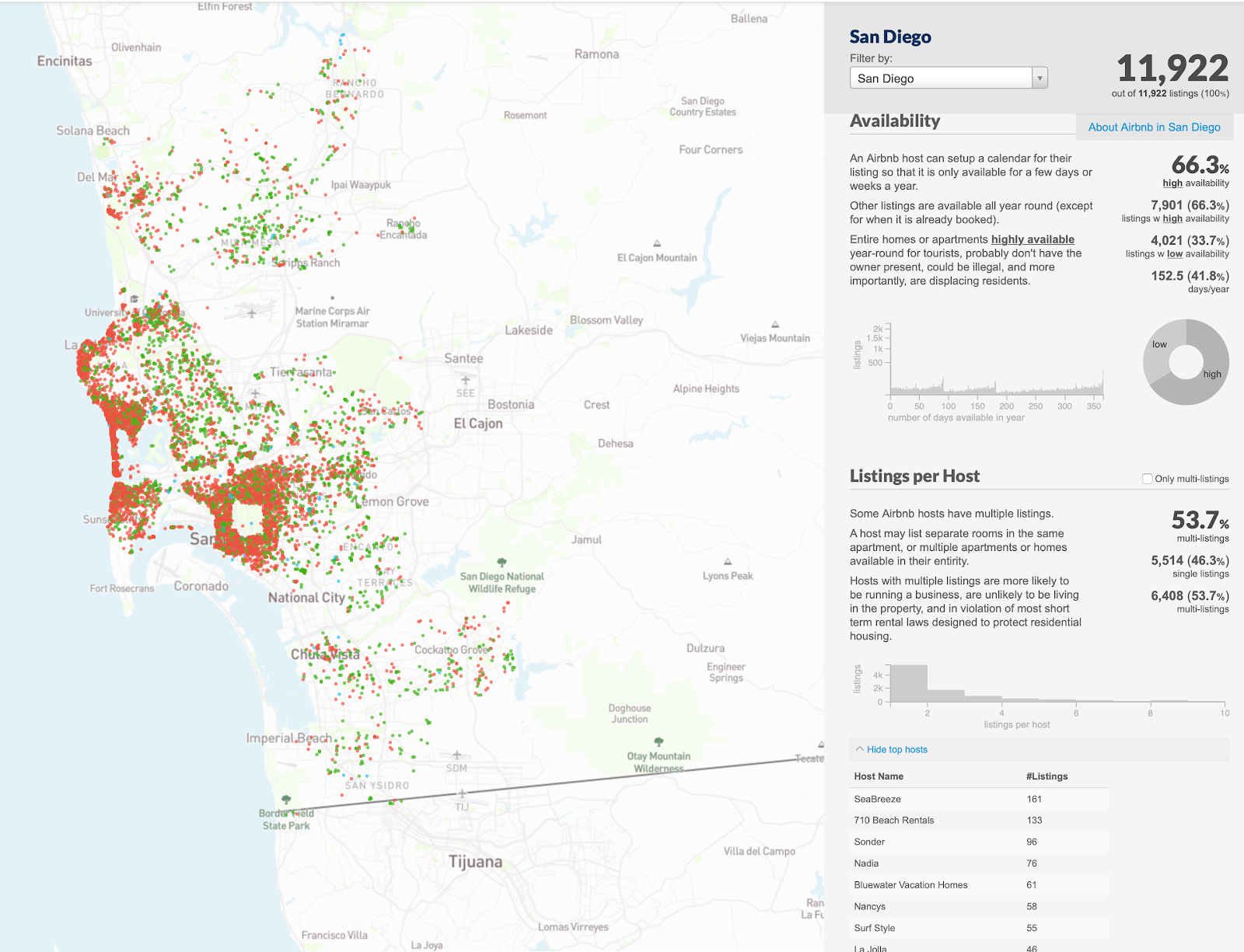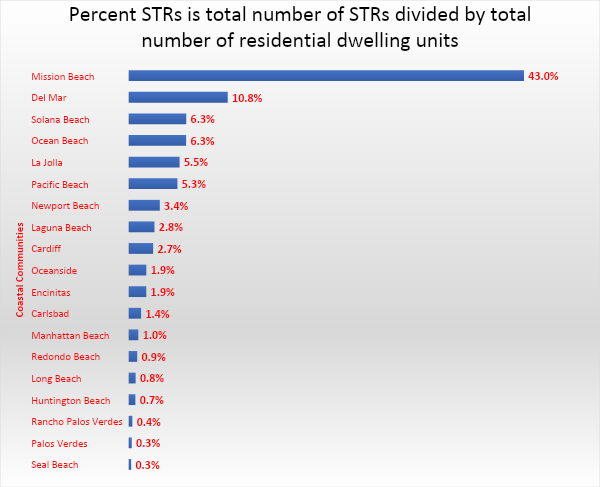San Diego Residents Don’t Support Agreement on Short-Term Rentals

This is an independent opinion in response to a commentary published on Sept. 16, titled “Agreement on Short-Term Rentals Will Boost San Diego’s Tourism Economy.” Have an opinion of your own? Email it to hoa@ivn.us
The truth is that almost none of the La Jolla, Pacific Beach, Mission Beach and Ocean Beach residents support the MOU proposal. There is nothing transparent in the MOU process development of the regulations by Expedia and UNITE HERE. None of the District 2 town councils and planning boards were asked for inputs until the MOU had already been signed. In addition to the flawed process, the authors fail to provide any data-based rationale for any of the limits selected, permit requirements or fee values. We were simply asked to trust the authors and Councilmember Jennifer Campbell.
The city of San Diego previously passed a relatively liberal version of STR regulations termed “primary only,” an approach adopted by a number of large cities around the world. But, then the City Council elected to rescind the ordinance when opponents of the regulations collected a sufficient number of signatures to potentially put this measure on the citywide ballot. The City Council could have passed the same or similar regulations one year later, but for threats from the short term rental community that signatures would again be gathered putting the ordinance on the ballot.
The Inside AirBnB map below also helps to explain the high-level of interest from SeaBreeze and 710 Beach Rentals on this issue. They are the two largest vacation rental management companies in San Diego with virtually 100% of their clients in La Jolla, Mission Beach and Pacific Beach. Their parochial view of this issue ignores the proliferation of STRs in most of the 372 square miles of neighborhoods of San Diego, which by the way would make enforcement a nightmare.

And speaking of enforcement, the city of San Diego at least for the last eight years, has demonstrated a very low appetite for curtailing new, disruptive businesses coming into San Diego — whether it is e-scooters that descended on San Diego in the last three years, or the short term rentals that have increased in magnitude from hundreds in the early 2000s to now as many as 16,000, according to a city auditor report. The City has reacted very slowly to attempt to regulate or, in the case of STRs, simply enforce the municipal code.
Rescinding the primary only STR regulations led Councilmember Barbara Bry to commit to enforcement of the code, which provides a much simpler solution to the problem. If elected mayor, Bry would have the City Attorney send letters to all of the property owners listing their STRs, requiring them to cease their short-term rental operations. This would likely have a chilling effect on the STR community, but particularly on the out-of-town STR investors, causing many property owners to shift back to long-term rentals. Those who continue to operate their STRs would be identified and prosecuted one at a time.
In the meantime, it is fairly easy to dismiss the MOU as a set of STR regulations written with a very parochial District 2 and Mission Beach perspective. The authors of the regulations have missed that there has been a shift of the epicenter of STRs to the downtown (again see the Inside AirBnB map), where growth downtown has far surpassed other areas of the city in the past few years. But, virtually 100% of 710 Beach Rentals clients are in Mission Beach and SeaBreeze has many all along the San Diego coastline. To a large degree, this explains the proposed carve out of Mission Beach, a move that was universally opposed by Mission Beach residents two years ago and continues to be unacceptable to the residents today.
In addition, the California Coastal Commission (CCC), once the Number One advocate for “affordable beach access,” is now far more concerned about long-term housing and day visitors access to the beaches. As evidence of this trend (see bar chart below), no other beach community has more than 11% of its total dwelling units used for STRs, while Mission Beach was at almost 55% in July of 2018 and 2019. In addition, the CCC approved the San Diego coastal plan that does not allow vacation rentals in residential zones. So, don’t expect the CCC to intervene in San Diego when the municipal code is enforced.

Even if the MOU proposal should make it to the City Council, expect very large opposition showing up with much of the opposition coming from the residents, not only from Mission Beach, but also downtown, La Jolla, Clairemont, Pacific Beach, Little Italy, Ocean Beach, Pt. Loma, North Park, Hillcrest, Golden Hills and University City. Even with enforcement of the code as is, some communities, such as Mission Beach, with a history of summer-winter rentals going back to the 1950s could take advantage of Article 7 (Previously Conforming Premises and Uses), if their STR operations were legitimate before the municipal code was implemented in 1979. I don’t believe residents of Mission Beach would have any problem with the 300 to 400 vacation rentals that were located along the ocean and bay boardwalks, as long as they comply with local standards of behavior.



